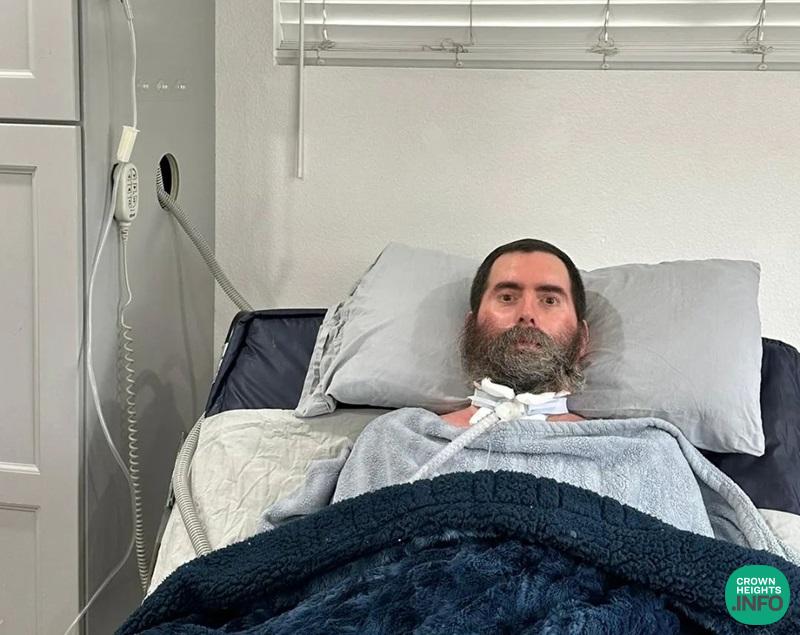
From Rabbi Yitzi Hurwitz: Lech Lecha – A Call To Every Jew
By Rabbi Yitzi Hurwitz
In the first verse of this week’s parsha, Lech Lecha, Hashem commanded Avraham, “Lech Lecha, go for yourself, from your land, from your birthplace, and from your father’s house, to the land that I will show you.” Hashem continues to tell Avraham that, “I will make you into a great nation, and I will bless you, and I will make your name great.” This is the first command to the first Jew, therefore, there must be a message here for every Jewish person, for all time. What is the message?
There are two approaches to understanding this verse. The first is that it is referring to the journey of the soul, a descent from above to below. The soul is asked to leave its home in the highest spiritual realms, and make the descent into the lowest possible realm, the physical world. But it is here that it affects the most change and accomplishes its purpose, and the effect is so powerful, that it brings Hashem’s blessing and becomes great. Meaning, that the soul is uplifted to higher spiritual realms, beyond where it was before its descent.
In this way of understanding the verse, we are given a glimpse of our purpose, the goal of every Jew, to make this world into a better place, the way Hashem wants it. A place where Hashem could call home.
The second approach is more in line with the simple meaning of the verse. It refers to the ascent from below to above we must make every day from the lowly and mundane, from “your land, your birthplace, and your father’s house,” which in the context of the verse, refers to a place and an atmosphere of idol worship, ” to the land that I will show you,” the land of Israel, a place of holiness.
This is especially poignant now after the holidays, when we are thrusted into the mundane, which in chasidic teaching is called, “V’Yaakov halach l’darko, and Yaakov went on his way,” meaning that every “Yaakov,” every Jew, goes on his way after the holidays, doing his mission to transform his part of the world into a dwelling place for Hashem.
The name Yaakov is used here, which comes from the word eikev, a heel, which is the lowest part of a person’s body, because we can even transform the lowest part of ourselves to do Hashem’s will. When the heel is transformed and moves in the ways of Hashem, it takes the rest of the body with it.
We see this on Simchas Torah, the end of the holidays, when we celebrate through dancing with the soles of our feet, and they make the body and head dance as well. This is the same message, and a preparation for the rest of the year, that if you can get the lowest part of you to serve Hashem, then all of yourself will serve Hashem. And if you can transform the lowest part of the world into a dwelling place for Hashem, then you transform the whole world. Because when you lift something from the bottom, you lift the whole thing.
It is through Torah, mitzvahs and living the life of a Jew that transforms this world, and we have the power to do it, we inherited it from our forefather Avraham. It is through this work that we complete Hashem’s command to Avraham, “Lech Lecha.”
Although these two explanations are opposites, the first a descent, and the second an ascent, they are both explanations of the same verse, and therefore simultaneously true. And we have to take both messages at the same time. That we have descended to effect this world, and we should try to change it from the bottom up.
So “Lech Lecha,” is a call to every Jewish person, to do all you can to complete the mission and make this world into a home for Hashem. It is through both of these approaches working simultaneously that we create an environment that the highest levels of G-dliness, even the levels that are beyond the world, to enter the world and become part of our lives.
This is the key to the blessings found in our parsha, and the path to the ultimate blessing, the coming of Moshiach. May he come soon.
ABOUT RABBI YITZI HURWITZ – יוסף יצחק בן ברכה
Rabbi Yitzi Hurwitz—father of seven, husband of Dina, and spiritual leader at Chabad Jewish Center in Temecula, Calif.—has been rendered immobile by ALS (Lou Gehrig’s Disease). Unable to speak or type, he uses his eyes to write heartfelt thoughts on the weekly Torah portion.
To find out more, or read more Divrei Torah by Rabbi Yitzi, visit www.torahfrommyeyes.com













Thank you
So inspirational. Thank you